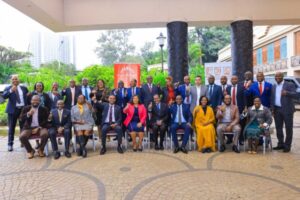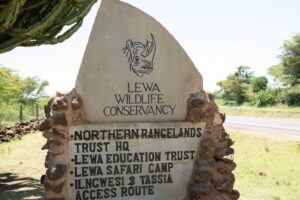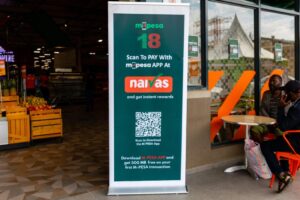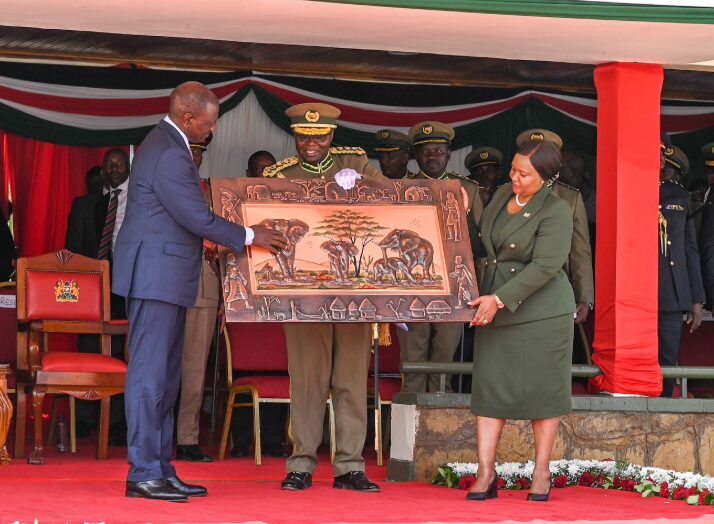[ad_1]
Companies
Ex-Nakumatt CEO fails to reverse Sh1bn auction
Monday May 03 2021
Former Nakumatt CEO Atul Shah. FILE PHOTO | NMG
Summary
- The sale of the personal properties marks a new low for Mr Shah, who for decades occupied the corner office of the regional retail business and was feted among top influential businessmen in the world.
- Banks have been battling to seize assets linked to Mr Shah and his family to recover the billions of shillings lent to Nakumatt.
- Nakumatt closed shop in January with debts estimated at Sh30 billion — including Sh18 billion to suppliers, Sh4 billion to commercial paper holders and the rest to banks.
The chief executive officer of fallen Nakumatt Atul Shah has lost a court bid to reverse the auction of his property for Sh1.04 billion over a multibillion-shilling loan he guaranteed the retail chain.
Court of Appeal judges said it would be unfair to stop the transfer of the property given the buyer, Furniture Palace International Ltd, had not been joined in the case.
Mr Shah and his Collogne Investments had also not denied defaulting on a KCB Group #ticker:KCB debt, said the judges.
The property — which personally belonged to the Shah family — was sold in November last year after the former CEO failed to convince High Court judge Alfred Mabeya to freeze the forced sale.
This is Mr Shah’s second property that KCB has auctioned after the lender quietly sold his Lavington home to recover debts in excess of Sh2 billion.
The sale of the personal properties marks a new low for Mr Shah, who for decades occupied the corner office of the regional retail business and was feted among top influential businessmen in the world, alongside Nigeria’s leading industrialist Aliko Dangote.
The Mabeya ruling allowed KCB to press for a speedy auction, fearing an appeal would open the window for rival lenders like Bank of Africa, DTB Bank #ticker:DTB and Standard Chartered #ticker:SCBK, who also laid claim to the property, to scuttle its claim on the asset.
Mr Shah protested the forced sale, arguing it failed to follow procedure and undervalued the property in Nairobi’s Industrial Area, which hosted the Nakumatt headquarters and other tenants.
“It will thus be unfair and unjust to issue an injunction that will affect its proprietary rights without being accorded an opportunity to be heard. Finally, the debt is not denied,” Justices William Ouko, Roselyn Nambuye and Asike Makhandia said in reference to Mr Shah’s application to have the transfer to Furniture Palace stopped.
Nakumatt argued the property was charged to other banks and if sold, it would make it difficult to recover the building.
Nakumatt owes Stanchart and DTB Bank a combined Sh4.5 billion and court documents show that they were also eyeing the Sh2 billion property.
The banks offered Nakumatt billions of shillings on the strength of the retail chain’s cash flow.
But Mr Shah used his company Collogne Investments, which owned the Sh2 billion property in Nairobi, as Nakumatt’s guarantor to offer additional comfort to the multiple bank loans.
The banks have been battling to seize assets linked to Mr Shah and his family to recover the billions of shillings lent to Nakumatt.
In an affidavit Atul’s son — Ankoor Shah — told the court that KCB had undervalued the property, arguing that it had found a buyer who would purchase the land and office block for Sh2 billion.
“If the court was in doubt, which is not the case here, the balance of convenience tilts in favour of allowing the defendant (KCB) to recover its outlay. Indeed, the loss already suffered by the defendant, and the other lenders, is colossal and the earlier they recover the little that there is and count their losses, the better,” the judge said.
Nakumatt closed shop in January with debts estimated at Sh30 billion — including Sh18 billion to suppliers, Sh4 billion to commercial paper holders and the rest to banks.
Regulatory filings indicate that Nakumatt owed DTB Bank Sh3.6 billion, Stanchart Sh900 million, KCB Sh1.9 billion, Bank of Africa Sh328 million, UBA Sh126 million and GT Bank Sh104 million.
Mr Shah says in court papers that some lenders offered Nakumatt loans with an eye on his properties, arguing that the banks were reluctant to support its rescue plan.
“That I believe that if the facilities were not disbursed with the singular agenda of deliberately burdening the borrower beyond the point of return (sic) and therefore appropriating the applicant’s subject property then the respondent ought to have committed to the rejuvenating of the borrower’s operations,” Mr Shah argues.
Creditors of the supermarket chain on January 7 voted to wind it up after it failed to repay debts following an unsuccessful rescue attempt.
After the vote, the banks started to identify properties and bank accounts linked to Mr Shah, especially outside Kenya, with a view to seizing and recovering the billions of shillings owed to them.
The local assets include shopping malls, office blocks and prime land in Nairobi, Mombasa and Nakuru — where Atul’s father started Nakumatt as a retail shop.
The properties are owned by third parties linked to the Shah family, which holds the bulk of Nakumatt shares, according to a document prepared by the retail chain’s court-appointed administrator.
The Directorate of Criminal Investigations’ Anti-Banking Fraud Unit is also investigating Nakumatt for alleged theft and money laundering.
In its heyday, the company, which began life as Nakuru Mattresses, had more than 60 outlets across Kenya, Uganda, Tanzania and Rwanda, before it was brought down by poor management and debt-fuelled rapid expansion.
Its financial problems led to empty shelves and store closures that eventually culminated in its demise.
[ad_2]
Source link



















